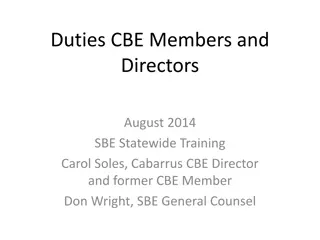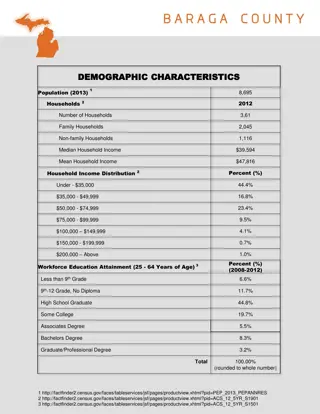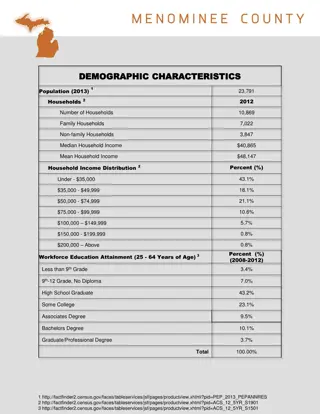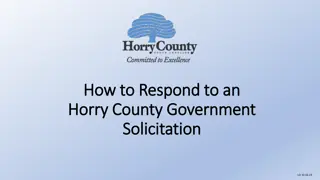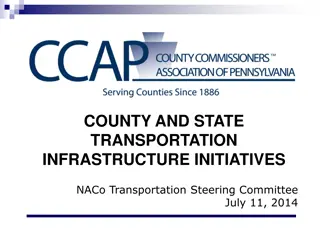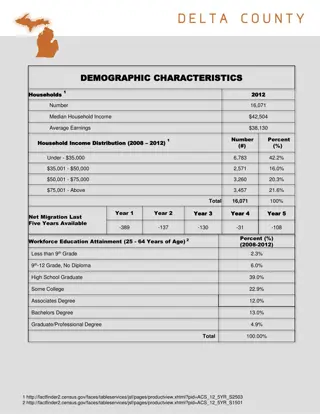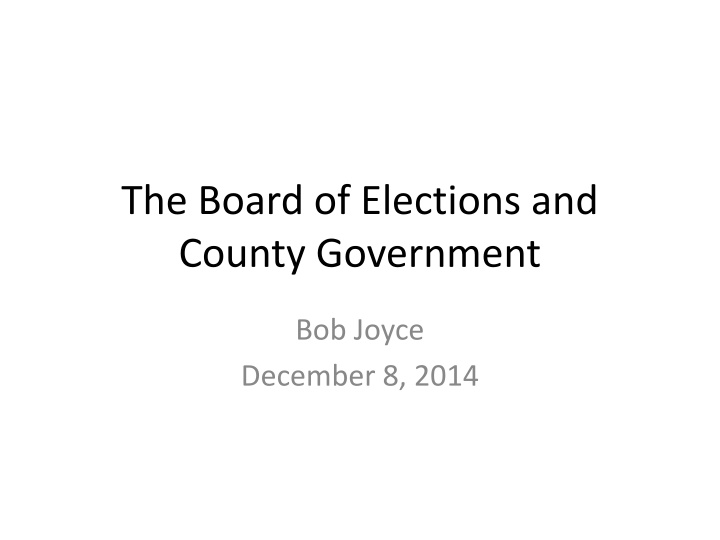
General Assembly and Local Government Laws Overview
Exploring the NC Constitution's provisions regarding county, city, and town governance, this content highlights the roles, powers, and limitations of local governments under the General Assembly's control. Learn about the organization, boundaries, and powers delegated to various governmental subdivisions, including the Sheriff's role and restrictions on incorporations near towns. Discover how the General Assembly enacts general and local laws, including city charters, and the power of general-purpose governments elected by the people to levy taxes.
Download Presentation

Please find below an Image/Link to download the presentation.
The content on the website is provided AS IS for your information and personal use only. It may not be sold, licensed, or shared on other websites without obtaining consent from the author. If you encounter any issues during the download, it is possible that the publisher has removed the file from their server.
You are allowed to download the files provided on this website for personal or commercial use, subject to the condition that they are used lawfully. All files are the property of their respective owners.
The content on the website is provided AS IS for your information and personal use only. It may not be sold, licensed, or shared on other websites without obtaining consent from the author.
E N D
Presentation Transcript
The Board of Elections and County Government Bob Joyce December 8, 2014
NC Constitution Article VII, Sec. 1: The General Assembly shall provide for the organization and government and the fixing of boundaries of counties, cities and towns and other governmental subdivisions . . .
NC Constitution and, except as otherwise prohibited by this Constitution, may give such powers and duties to counties, cities and towns, and other governmental subdivisions as it may deem advisable.
NC Constitution Limitations on incorporations near other towns Each county has a sheriff; term; no felons City/county merger
NC Constitution No inherent powers in cities or counties
NC Constitution No inherent powers in cities or counties No home rule
NC Constitution No inherent powers in cities or counties No home rule The General Assembly is in full control: to act as it may deem advisable
How the General Assembly Acts General laws
How the General Assembly Acts General laws Local acts
How the General Assembly Acts General laws Local acts: city charters
General-Purpose Governments Governing board elected by the people
General-Purpose Governments Governing board elected by the people Power to levy taxes
General-Purpose Governments Governing board elected by the people Power to levy taxes Regulate conduct through ordinances
General-Purpose Governments Governing board elected by the people Power to levy taxes Regulate conduct through ordinances Authorized to provide broad range of services
Counties vs. Cities Counties to carry out state purposes
Counties vs. Cities Counties to carry out state purposes sheriff and criminal laws registers of deeds justices of the peace
Counties vs. Cities Counties to carry out state purposes sheriff and criminal laws registers of deeds justices of the peace schools public health social services
Counties vs. Cities Cities to provide services in denser areas Water Sewage Solid waste Fire/police Land use regulation
Counties vs. Cities Beginning around 1950, the General Assembly started authorizing counties to provide the kinds of services that cities had been providing, in addition to carrying out their state-purposes role.
Counties vs. Cities Beginning around 1950, the General Assembly started authorizing counties to provide the kinds of services that cities had been providing, in addition to carrying out their state-purposes role. Cities and counties have become more alike, except that counties have required duties that cities do not have.
Counties vs. Cities City duties not shared by counties
Counties vs. Cities City duties not shared by counties Streets Cable TV/communications services Electric systems Gas systems
Counties vs. Cities County duties not shared by cities
Counties vs. Cities County duties not shared by cities Public schools Community colleges Court system Public health Social services Register of deeds
Counties vs. Cities County duties not shared by cities One more
Counties vs. Cities County duties not shared by cities One more: elections
Counties vs. Cities Organization Cities are organizationally simple Counties are organizationally complex
NC County Government Structure Voters State Bd of Elections Register of Deeds County Local Bd of Education Soil and Water Cons. Supervis. Sheriff Local Bd of Elections Commissioners Superintendent Deputies Deputies Director Bd of Adj. Regional Mental Health Bd Human Services Bds Clerk Mgr Atty Director ABC Bd Other County Departments Finance Public Health Bd Social Services Bd Planning/Zoni ng HR Public Works Utilities Parks and Rec Etc.
County Complexity Commissioners must levy taxes and then give it to others to spend
County Complexity Commissioners must levy taxes and then give it to others to spend Social services* Public health* Sheriff Public schools
County Complexity Commissioners must levy taxes and then give it to others to spend Social services* Public health* Sheriff Public schools And one more
County Complexity Commissioners must levy taxes and then give it to others to spend Social services* Public health* Sheriff Public schools And one more: elections
Revenue Property tax Sales tax Income tax Gasoline tax
Revenue Property tax (local only) Sales tax Income tax Gasoline tax
Revenue Property tax (local only) Sales tax (state and local) Income tax Gasoline tax
Revenue Sales tax 4.75% state plus 2.0% or 2.25% or 2.75% county
Revenue Property tax (local only) Sales tax (state and local) Income tax (state only) Gasoline tax
Revenue Property tax (local only) Sales tax (state and local) Income tax (state only) Gasoline tax (state only)
Revenue Other sources fees by sheriff, register of deeds, courts, impact fees, filing fees alcohol taxes tipping taxes real estate transfer tax 911 tax ABC profits fines and penalties investment earnings rental car tax motor vehicle license tax
County and the CBE County has no role in naming CBE members
County and the CBE County has no role in naming CBE members Mandatory payment to CBE members GS 163-32
County and the CBE County has no role in naming CBE members Mandatory payment to CBE members GS 163-32 Payment to employees within budget approp.
County and the CBE County has no role in naming CBE members Mandatory payment to CBE members GS 163-32 Payment to employees within budget approp. Payment to director approved by comm rs commensurate with similar counties
County and the CBE County has no role in naming CBE members Mandatory payment to CBE members GS 163-32 Payment to employees within budget approp. Payment to director approved by comm rs commensurate with similar counties Director gets same leave as county employees
County and the CBE County has no role in naming CBE members Mandatory payment to CBE members GS 163-32 Payment to employees within budget approp. Payment to director approved by comm rs commensurate with similar counties Director gets same leave as county employees CBE appoints and removes employees
County and the CBE Memorandum of understanding
County and the CBE The respective boards of county commissioners shall appropriate reasonable and adequate funds necessary for the legal functions of the county board of elections, including reasonable and just compensation of the director of elections. GS 163-37
County and the CBE The board of county commissioners may decline to adopt and acquire any voting system recommended by the county board of elections but may not adopt and acquire any voting system that has not been approved by the county board of elections. GS 163-165.8
County and the CBE The respective boards of county commissioners shall appropriate reasonable and adequate funds necessary for the legal functions of the county board of elections, including reasonable and just compensation of the director of elections. GS 163-37
County and the CBE County and the school board: If the board of education determines that the amount of money appropriated to the local current expense fund, or the capital outlay fund, or both, by the board of county commissioners is not sufficient to support a system of free public schools a dispute resolution process begins. GS 115C-431















